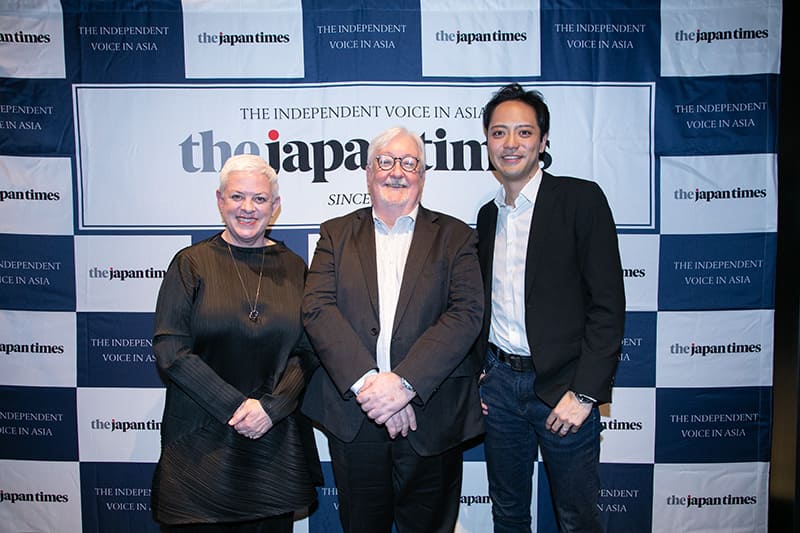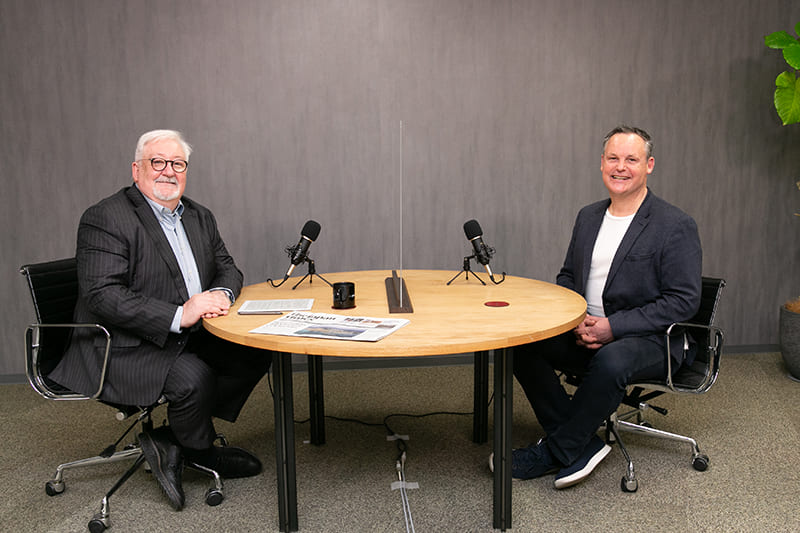February 03, 2023
Sustainable Lab harnesses the power of data science

Yuki Kishi, the chief financial officer of Sustainable Lab, a financial technology startup that gathers companies’ ESG data and provides it to investors and banks, was the guest at The Japan Times Sustainable Roundtable No. 27, hosted by Ross Rowbury, on Jan. 13.
The company wants to become a recognized platform in the quest for worldwide sustainability and contribute in a meaningful way to sustainability-based decision-making. In the coming years, they hope to expand their business operations outside their base of Japan to include Singapore, Europe and the United States. Kishi and Rowbury discussed a range of topics including diversity, Sustainable Lab’s initiatives and issues facing the sustainability transition today.
The power of diversity
ESG is a broad category covering diverse environmental, social and governance issues. The social part is what intrigued Kishi the most in joining the company.
Born in Osaka, he moved to multicultural London at the age of 12 and attended an international school surrounded by people of different nationalities. Entering the workforce with a background in finance, he spent eight years at Deutsche Bank and continued to be exposed to people from around the world. He learned that “diversity is what creates innovation,” and passionately believes that workplaces that embrace diversity — like Sustainable Lab — are the places where successful ideas are born.

Data enabling sustainability
“The relationship between people who need the funding to carry on the transition and the people who are supplying that money is a critical one,” Rowbury commented. But to make decisions on financing, having transparent data is key. Sustainable Lab wants to create a world in which every investment decision is based on data sets like the ones it procures, and thereby help lead the charge toward global sustainability.
Currently, it offers two services. The first is a “next-gen Bloomberg”, called Terrast (from “terasu” to illuminate”) which focuses on companies’ ESG metrics.. Many companies already produce annual sustainability reports that include data such as carbon dioxide emissions or board diversity. Sustainability Lab analyzes the data in these reports and organizes it visually for its customers, investors and even academics.
Another service, called Terrast for Enterprise, is a tool for enterprises to self-assess their strategies related to ESG and the U.N.’s SDGs. Though companies are increasingly focusing on ESG, in-house working groups often are at a loss as to just what they should be doing. Even if they have a strategy, they may not be able to tell if it is effective or not. Data is crucial for a coherent ESG corporate strategy. “Companies need to be able to see where they are and how they stack up against industry peers. We are helping them by providing an ESG toolkit that equips them with visualized data,” he said.
There are companies today that try to “go green” without even knowing what their overall purpose is, which areas they actually need to improve in, or what the most financially appropriate strategies are. Terrast can help companies target the metrics that are most financially sound. Naturally, financial stability is important to any business, so Terrast attempts to highlight which ESG metrics are helping to improve their financial condition. In this way, businesses can become sustainable without endangering profitability.
While Kishi noted that his company’s expertise is not in the specifics of solving ESG issues, the services it provides reveal the ESG issues that companies are facing. The data forms the basis for actionable insights, and is thereby the starting point for the conversation on sustainability. “We are a company that functions like an annual health check. We meet with a company from year to year to let them know how they are doing and what they could be doing better,” he explained. Ultimately, what corporations want to know is what actions they should take based on the numbers, and this requires interpretation and analysis.

Overcoming hurdles
Rowbury illustrated what has become something of an ESG dilemma: the ever-evolving narrative. “Seven years ago, the narrative in Japan was about gender diversity. Later, the emphasis was more on LGBTQ issues, and now it is more about ‘inclusion’ and ‘equity.’” Kishi agreed that the changing focus is problematic, and added that “now environmental issues have taken precedence over social ones.” The difficulty for companies faced with making long-term investments related to ESG issues lies in the time horizons involved. Companies that invest a large sum into a multiyear plan to improve one aspect of ESG may find that the impact of their investment is greatly reduced due to the public focus having shifted to something different in the interim.
To help companies navigate this dynamic landscape, data once again provides an answer. Sustainable Lab currently maintains the largest set of corporate ESG data in Japan, with nearly 4,000 public and nonpublic companies from around the world in its database. This allows it to notice shifting trends and spot correlations between specific ESG metrics and financial stability. In other words, its data can shed light on which metrics tend to have a positive long-term impact and are worth the capital risk.
While data is the prerequisite for Sustainable Lab’s business model, acquiring it isn’t always simple. Depending on the company and how much information is publicly available online, it can be difficult to get comprehensive data. To fill in the holes, Sustainable Lab goes beyond digital data mining and reaches out directly to companies to request more information, which is then added to the database. Not all companies are forthcoming, however, due to their corporate culture, the jurisdiction they are based in, or simply not wanting to report information that might cast a shadow over their business.

Another pain point is in making comparisons between companies. Not all companies report the same information or use the same metrics. “Fortunately, we have an enormous amount of data,” Kishi said. That alone can help with identifying patterns and shifting trends, plus highlighting businesses that are performing vastly better than others, or perhaps are “too good to be true” through using overly generous reporting methodologies.
Greenwashing — issuing false or exaggerated claims about a company’s ESG status or the sustainability of its products — is an issue that could be particularly pernicious for a business that relies on data transparency, like Sustainable Lab. However, Kishi explained that greenwashing is more of a problem between companies and consumers, and less so in business-to-business dealings and investor relations — situations in which the fine print is read carefully.
Of course, Sustainable Lab wants consumers to be more conscious of their role in sustainability too. To this end, it is now collaborating on a project with a Japanese e-commerce company to create a new search category for online shopping. “People usually search for products online based on reviews and price, but what we want to do is create another metric: a ‘sustainability score’ for products,” Kishi said. Consumers would be able to use this to make more informed purchase decisions by ranking search results based on sustainability. With eco-conscious consumers on the rise, moves like this should benefit companies with an eye toward sustainability initiatives, making the services Sustainable Lab provides all the more important.


















